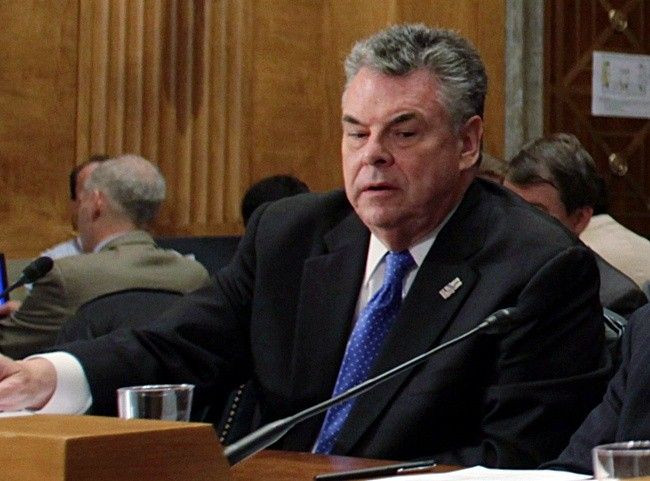Al Qaeda U.S. Recruiting Sparked Muslim Probe, says Lawmaker

Al Qaeda's attempts to recruit in the United States and three incidents over the past two years involving killings or attempted killings of Americans are what prompted an investigation into the extent of radicalization in the Muslim community, Rep. Peter King of New York said on Sunday.
King said the hearing would focus on the influence of Al Qaeda.
We're talking about the affiliates of Al Qaeda who have been radicalizing, and there's been self-radicalization going on within the Muslim community, within a very small minority, but it's there. And that's where the threat is coming from at this time, he said on CNN's State of the Union program on Sunday.
The hearing, set for Thursday at 9:30 a.m., is entitled The Extent of Radicalization in the American Muslim Community and that Community's Response.
It has been in the works for months, as King said he would make the topic one of his priorities if he was assigned the chair's position in the committee after last November's election.
Rep. Keith Ellison of Minnesota - who is the first Muslim elected representative in the United States - also appeared on the program together with King and said he would challenge the basic premise of the hearing.
Ellison said he was participating in the hearing because he though you've got to be involved in the conversation.
You've got to offer an alternative view. And I do plan on saying that I challenge the basic premise of the hearings, that I do agree that we should deal with radicalization and violent radicalization but that singling out one community is the wrong thing to do.
King focused on three incidents within the past two years which have been linked with Al Qaida.
The first involves Army psychiatrist Major Nadal Hasan, who is accused of shooting 13 people at Fort Hood in Texas in November of 2009. The other two incidents had ties to New York. In the first Faisal Shazad pleaded guilty to setting off a car bomb in Times Square in May of 2010. In another Incident Ngibullah Zazi, a Colorado airport shuttle driver, pleaded guilty to a plotting to bomb the New York subway system.
King was asked why something like the recent Arizona shooting, in which his colleague Rep. Gabrielle Giffords was injured, wasn't in his purview, or didn't fit into Thursday's investigation.
This is Al Qaeda internationally; it's attempting to recruit within the United States, King said on CNN's State of the Union on Sunday.
People in this country are being self-radicalized, whether it's Major Hasan or whether it's Shahzad or whether it was Zazi in New York. These were all people who were identifying, in one way or another, with Al Qaida or Al Qaida in the Arabian Peninsula, he said.
So it's an international movement with elements here in the United States, he said.
And to me, that is a real distinction. There's always going to be isolated interests, isolated fanatic, isolated terrorists even, But an organized terrorist effort, to me, is different, which requires an investigation into that, he said.
Ellison said it does make sense to talk with people in the Muslim community about how we can meet the challenge of public security.
However he added that it doesn't make sense to narrow in on a discreet insular group that has already been the target of a certain amount of discrimination.
© Copyright IBTimes 2025. All rights reserved.





















